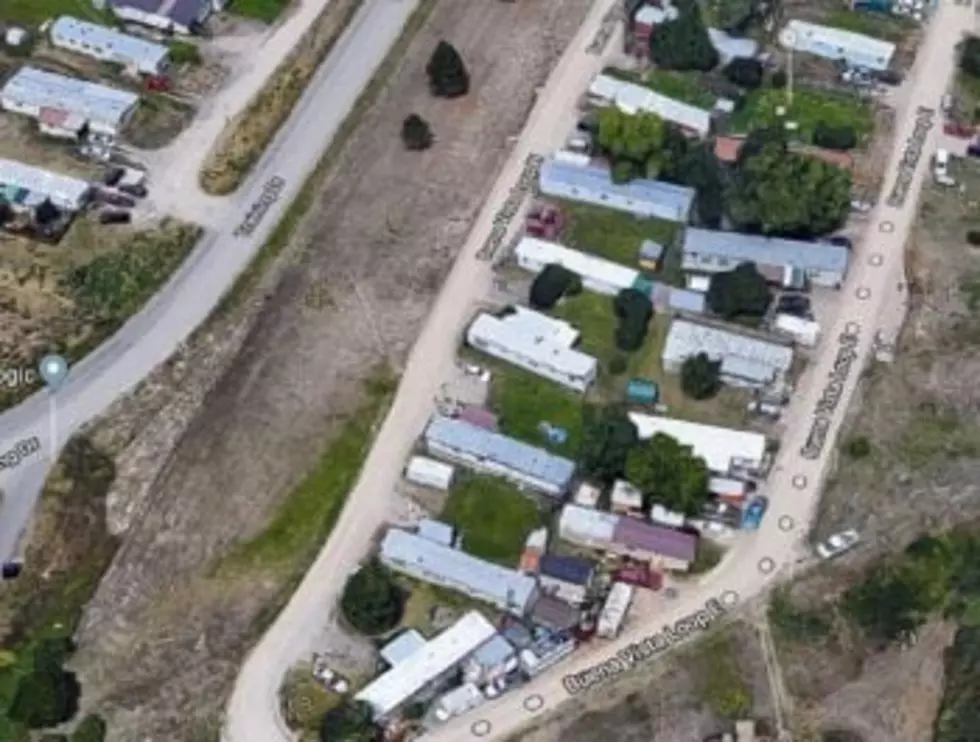
Buena Vista: Miscalculations force Missoula County to add costs to wastewater project
After years of planning, work on a wastewater treatment system in a Missoula mobile home park continues to move forward, though it recently hit a roadblock when engineers “grossly” miscalculated the amount of sludge to be removed, county officials said Thursday.
That has forced Missoula County to pony up an additional $9,600 and delay aspects of the project that were initially included with the first phase.
While displeased with the news, commissioners agreed to amend the contract and fund the difference to keep the Buena Vista wastewater system on track.
“Things have been going well, except we ran into a snag with the reclamation of the lagoons,” said Sindie Kennedy with the county's grants program. “The engineers grossly underestimated the amount of sludge. They originally said it would be 16 tons. When they recalculated, it's actually 325 tons.”
The county spent several years chasing down grants and other funding to cover the $470,000 cost to conduct the environmental cleanup associated with the mobile home park's wastewater system.
That work represented the project's first phase and included a full reclamation of the three sewage lagoons, installing a lift station and connecting it to city services. But the county will have to forgo aspects of that work and place them into Phase 2, which is not yet funded.
“We're going to have to pay for the 325 tons (of sludge) at $120 per unit, which adds up to $39,000,” said Kennedy. “The original budget, just for the lagoon reclamation, was $42,320. We're removing a bunch of items from the reclamation part of the project, so that all we'll be doing is removing the sludge. Filling in the holes with fill dirt, reseeding and all that will have to be pushed to Phase 2.”
While Great West Engineering miscalculated the amount of sludge that needed to be removed, White's Civil Contracting also over-excavated “to a tune of 800 tons,” Kennedy said. She said both the engineering firm and the contractor have admitted their errors.
“It has taken us several weeks to get to the point where the engineers finally acknowledged they made a mistake in their calculations, and where the contractor finally acknowledged that they over-excavated,” said Kennedy. “We've reviewed the contract and determined there's basically nothing we can do.”
John Hart, a deputy Missoula County attorney, said the master contract was signed in 2014 using a template preferred by professional contractors. While the county has since moved to a different template, he said it would be cost-prohibitive to make a claim.
“If we wanted to make a claim here, we'd have to go through binding arbitration, which would be very expensive and would eat up a large amount of what we would recover,” said Hart. “Also, there are significant restrictions on the kinds of damages that can be recovered.”
Kennedy said the Montana Department of Environmental Quality has been accommodating, allowing for changes in the project.
“It's a budget where I feel I have some wiggle room and they (DNRC) have authorized me to move some items to the construction budget,” Kennedy said. “In the end, we should have a little surplus, about $7,800. But that won't begin to cover the cost to reclaim the three lagoons.”
Commissioners also approved a $10,000 contract extension with Great West to complete the preliminary engineering report for the project's second phase. The work will connect each mobile home to the new wastewater system.
It will also complete restoration of the lagoons, which were intended to be done in Phase 1.
“Until we have the preliminary engineering report, we won't know how much it's going to cost,” said Kennedy. “Ideally, Phase 2 would involve getting each individual property connected to the sewer, and of course, the lagoon reclamation.”
Located west of Missoula International Airport, Buena Vista represents a collection of mobile homes that sit above a series of sewage lagoons. The environmental impacts of the unlined lagoons placed Buena Vista high on the priority list for the new treatment system.
The county has secured $125,000 for the project's second phase, though it expects that Phase 2 will cost more than Phase 1.
“We will have to start writing grants as soon as we get the preliminary engineering report from Great West to start trying to fund Phase 2,” said Kennedy. “We don't know how much it's going to cost, or how quickly we'll be able to raise additional funds for that.”
